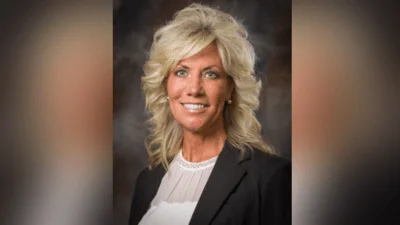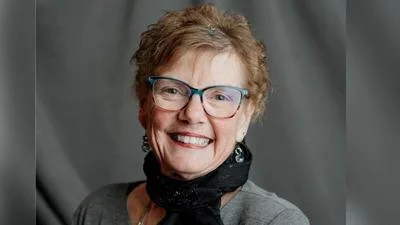Scott Krug, Wisconsin State Representative for 72nd District | www.facebook.com
Scott Krug, Wisconsin State Representative for 72nd District | www.facebook.com
According to the Wisconsin State Legislature's official website, the bill was described as follows: "hours for voting by absentee ballot in person at the office of the municipal clerk or an alternate site. (FE)".
The following is our breakdown, based on the actual bill text, and may include interpretation to clarify its provisions.
In essence, this bill mandates that the office of the municipal clerk or an alternate site must be open for at least 20 hours during the absentee voting period before an election. It requires that the type E notice, which informs voters of the absentee voting process, must specify the office hours during which voters can cast an in-person absentee ballot without prior appointment. Additionally, the bill amends the statutes to extend the deadline for receiving absentee ballot applications by mail to 5 p.m. on the fifth day preceding the election and stipulates the handling of ballots for sequestered jurors on election day. The amendments also require publication of specific office hours for absentee voting in various notices preceding elections.
The bill was co-authored by Senator Rachael Cabral-Guevara (Republican-19th District), Representative Elijah R. Behnke (Republican-6th District), Representative Barbara Dittrich (Republican-99th District), Representative Rick Gundrum (Republican-58th District), and Representative Dean Kaufert (Republican-53rd District). It was co-sponsored by Senator Steve L. Nass (Republican-11th District), along with four other co-sponsors.
Scott Krug has co-authored or authored another 37 bills since the beginning of the 2025 session, with none of them being enacted.
Krug graduated from the University of Wisconsin at Green Bay in 2008 with a BAS and again in 1999 from Mid-State Technical College with an AA.
Krug, a Republican, was elected to the Wisconsin State Assembly in 2011 to represent the state's 72nd Assembly district, replacing previous state representative Marlin D. Schneider.
In Wisconsin, the legislative process starts when a senator, constituent, group, or agency proposes an idea for a bill. After drafting, the bill is introduced, numbered, and referred to a committee for review and public input. If approved, it moves through three readings and votes in both the Senate and Assembly. Once both chambers pass the same version, the bill goes to the governor, who can sign it, veto it, or let it become law without a signature. Only a small share of bills introduced each session ultimately become law. You can learn more about the Wisconsin legislative process here.
| Bill Number | Date Introduced | Short Description |
|---|---|---|
| AB312 | 06/06/2025 | Hours for voting by absentee ballot in person at the office of the municipal clerk or an alternate site. (FE) |
| AB202 | 04/17/2025 | Voidable provisions in residential rental agreements and the application of the Wisconsin Consumer Act to leases. (FE) |
| AB195 | 04/15/2025 | Revoking a transfer of real property on death, obtaining evidence of the termination of a decedent’s property interests, disbursing deposits after rescission of real property wholesaler contracts, and filing satisfactions of judgment |
| AB183 | 04/15/2025 | Standard industrial classification codes for linen supply and industrial launderers and modifying the manufacturing and agriculture tax credit. (FE) |
| AB177 | 04/15/2025 | Sales and use tax exemption for diapers and feminine hygiene products. (FE) |
| AB154 | 04/02/2025 | Use of certified seed potatoes in planting potatoes and providing a penalty. (FE) |
| AB128 | 03/11/2025 | Requiring first responders to be trained to administer epinephrine delivery systems. (FE) |





 Alerts Sign-up
Alerts Sign-up